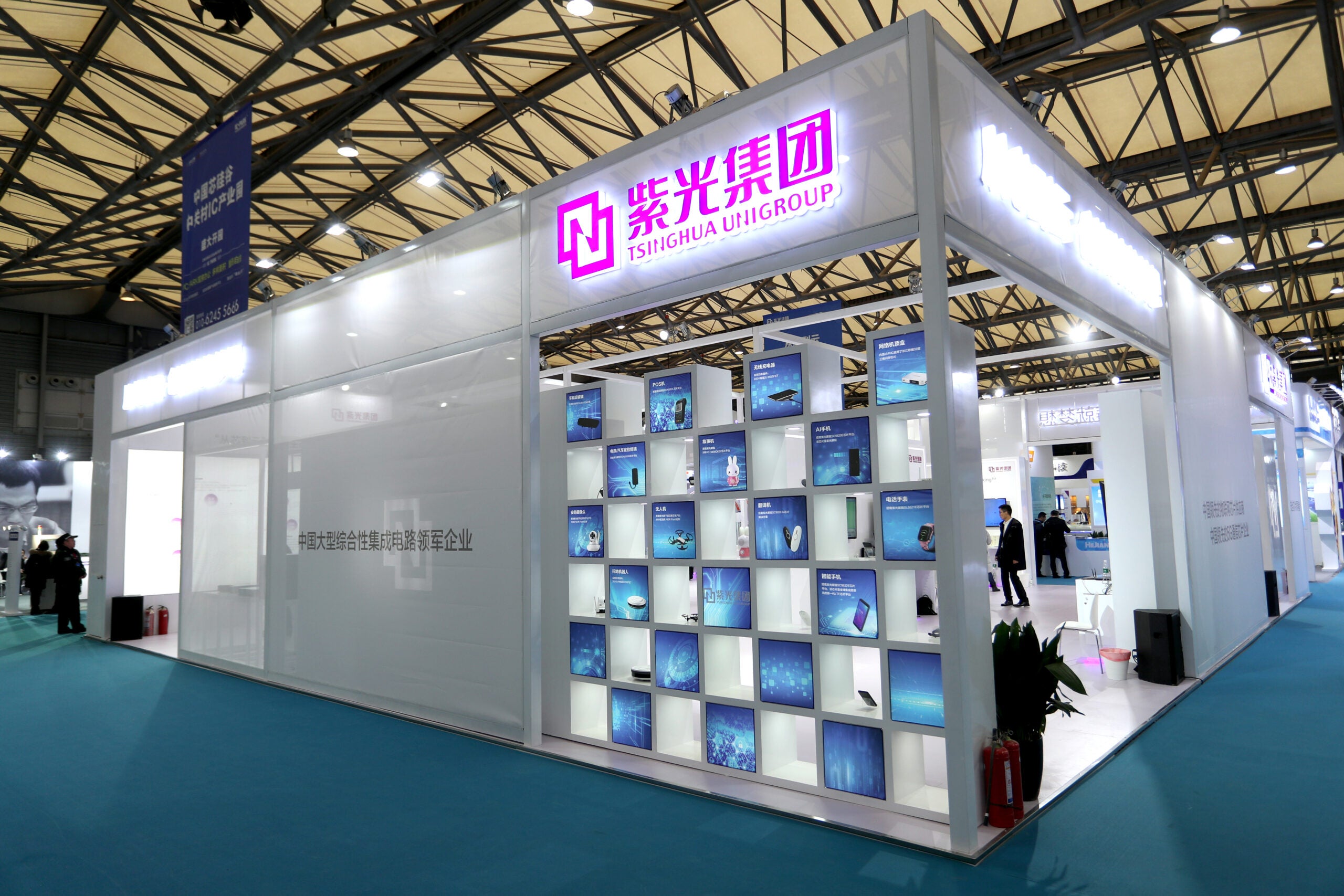
The Chairman of Tsinghua Unigroup, Zhao Weiguo, has stated that he is opposed to the recently announced bailout proposal from Jianguang Asset Management (JAC Capital) and Wise Road Capital. The Chinese chip developer was once seen as a standard-bearer for Beijing’s semiconductor self-sufficiency ambitions but has recently struggled with towering debts.
Zhao said that he opposes the investment proposal because it would lead to 74.3bn yuan (US$11.7bn) in losses of state assets. He also claimed that the bid made by JAC Capital and Wise Road Capital undervalued some of Tsinghua’s assets, such as its memory chip subsidiary Yangtze Memory Technologies, Chinese media reported, citing a memo written by Zhao.
Reportedly, the details of the deal were only revealed to Zhao on Monday, three days after the proposal had already been announced, to which the chairman said he “couldn’t help but be shocked and angry”.
On Friday, Tsinghua Unigroup announced that a consortium led by JAC Capital and Wise Road Capital would become strategic investors to bail out the Beijing-based semiconductor developer. According to Chinese media, the two asset management firms would invest 60bn yuan (US$9.42bn) into Tsinghua. The deal is still pending court approval.
In his memo, Zhao also claimed that the investors did not meet the requirements set out by Tsinghua. According to a statement released by Tsinghua Unigroup in July, potential investors must have 50bn yuan (US$7.7bn) in minimum total assets in the past year or possess 20bn yuan (US$3bn) in minimum net assets.
The memo claimed that the two asset management companies did not meet the 50bn yuan benchmark, either individually or with their assets combined. It also stated that their net assets did not meet the 20bn yuan requirement.

US Tariffs are shifting - will you react or anticipate?
Don’t let policy changes catch you off guard. Stay proactive with real-time data and expert analysis.
By GlobalData“Whoever came is welcome. I just doubt whether they have the financial ability at all,” Zhao said.
Zhao’s opposition to the proposal could mean that Alibaba is back in the race. Last month, it was revealed that the Chinese ecommerce giant was also in the running to bail out the indebted chip developer. Alibaba – which is rapidly expanding its chipmaking capabilities – could benefit from Tsinghua’s semiconductor facilities and cloud business.
Verdict has previously explained Tsinghua Unigroup’s debt problem and its call for funds to bail the company out. In July, it put out a statement saying that it was looking for private investors with cloud computing and semiconductor expertise to ease its 200bn yuan (US$30.8bn) debt.
The company is better described as a semiconductor holding company rather than a known innovator. Tsinghua Unigroup has a total of 286 subsidiaries, making it one of the country’s largest tech conglomerates.
Prominent subsidiaries include UNISOC, China’s fifth-largest mobile phone chip supplier, Yangtze Memory Technologies (YMTC), a memory chip manufacturer, New H3C Technologies, a digital solutions provider, Guoxin Micro, a microelectronics manufacturer and UniCloud Technology, an IT solutions provider.
Zhao’s holding firm Beijing Jiankun holds a 49% stake in the company, with the remainder held by China’s elite Tsinghua University.
Under Zhao’s leadership – he is a Tsinghua University graduate himself – the company initiated a wave of debt-fuelled expansions in numerous tech-related and non-tech-related industries.
Only a few of those investments were successful, which caused the company to cross-default on onshore and offshore bonds worth over US$3.6bn by the end of 2020. This summer, it received a request to initiate bankruptcy restructuring procedures from state-owned Huishang Bank, which shows that firms backed by the Chinese government are not invincible.
Nevertheless, it seems unlikely that Beijing will let Tsinghua’s, albeit modest, chipmaking capabilities go to waste, given the government’s desire to boost its homegrown chipmaking capabilities.
Chinese officials have pumped substantial sums of money into the country’s tech sector. According to GlobalData’s analysis, China recently announced a $1.4tn state programme to support R&D in key enabling technologies over the next five years, including semiconductors.
It also doubled down on ambitions to supply 75% of its semiconductor demands with domestically manufactured chips by 2025. By 2035, the country wants to be fully self-sufficient in the semiconductor market.
On Thursday, the management team of Tsinghua Unigroup expressed their discord with the Chairman’s statement, writing that he had spread “false information”. According to the notice published on Tsinghua’s public social media account, the company supports the restructuring plans.
Chinese media reported on December 29 that Tsinghua agreed to the investment proposal which will be completed before March 31. JAC Capital and Wise Road Capital will inject 60bn yuan (US$9.42bn).







